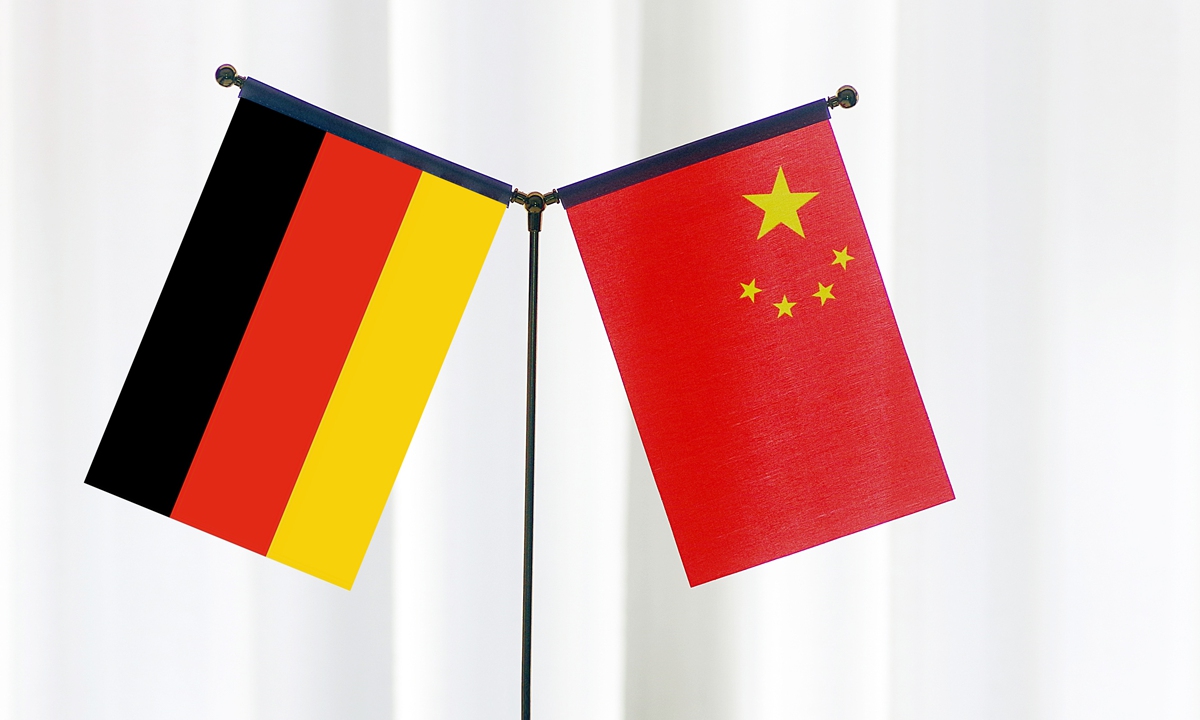
China Germany Photo:VCG
At a time when both China and Germany have shown their willingness to further deepen mutually beneficial cooperation between the two sides, it is selfish of a few German politicians to stubbornly choose to show their tough attitude toward China by provoking China's sovereign rights, which only reflects their disregard for Germany's overall interests.German Minister of Education and Research Bettina Stark-Watzinger wants to visit Taiwan island next year, her Free Democratic Party (FDP) colleague Peter Heidt revealed at a recent forum in Berlin, according to German media outlet Tagesspiegel on Tuesday.
The Tagesspiegel report also mentioned when asked about the visit on Tuesday, the German Federal Ministry of Education and Research neither officially confirmed nor denied it. Apparently, there are still uncertainties about the highly controversial visit.
If confirmed, the visit will show that some German politicians, out of their own political interests, like to indulge in petty moves to stir up trouble for China-Germany relations. They try to create a tough atmosphere against China, subverting the political basis of German cooperation with China,which only because they believe Germany's dependence on China has come to the level that can endanger the so-called "national security."
But these political gimmicks don't change the fact that bilateral cooperation remains the mainstream voice when it comes to China-Germany relations. Whether German companies choose to alienate their important trading partners for such ludicrous political reason or not is up to the business community, not politicians.
The fact that China has become an important investment destination for large-scale German companies in recent years is sufficient to demonstrate the resilience of bilateral economic ties amid political headwinds. Currently, there are more than 5,000 German companies developing in China, with German direct investment in China exceeding $90 billion as of the end of 2021. In the first eight months of this year, German actual investment in China jumped 30.3 percent year-on-year, according to data from China's Commerce Ministry. Mercedes-Benz, for example, sells nearly three times as many cars in China as it does in the US; while China accounted for 33 percent of BMW's global sales in 2021.
In September, German chemical giant BASF SE announced the first plants of its Verbund site in the city of Zhanjiang, South China's Guangdong Province, started production. It is expected to receive total investment of up to 10 billion euros by 2030, which is BASF's largest investment to date.
These real investment cases are the result of market rules and business decisions, also a microcosm of economic globalization, which is the manifestation of the trust and confidence of these German companies in the Chinese market.
Fundamentally, such confidence stems from the steady development of China-German economic and trade relationship. In 2021, total trade between China and Germany reached 245.3 billion euros, accounting for 35 percent of total China-EU trade. China remained Germany's largest trading partner for six consecutive years. Moreover, China's willingness to maintain a stable trade policy with Germany in the long run hasn't changed.
As the energy crisis intensifies in Europe, companies in many European countries, including Germany, are facing greater operational pressure amid higher costs. At this juncture, if they can continue to expand their business in China, there will be more opportunities and support for German companies to pull through the difficult times.
Therefore, while there are irrational anti-China voices in Germany, there are also more mainstream calls from the business and political circles for pragmaticism and steadiness when it comes to making China policy.
Against the backdrop of the sluggish global economic recovery and unrest triggered by unilateralism and hegemony in many parts of the world, it is more essential than ever for China and Germany to give rise to the voice of cooperation in the near future, instead of being carried away by irrational noises.



